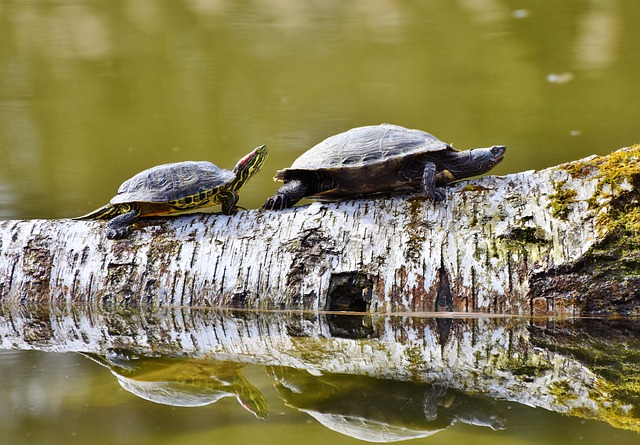Turtles are fascinating creatures that many people enjoy keeping as pets. However, one of pet owners’ most common questions is what they should feed their turtles. Guppies are small, colorful fish often used as food for other aquatic animals, but can turtles eat guppies?
The answer to this question is yes; in fact, guppies are a great source of protein for turtles and can be a healthy addition to their diet.
However, it’s important to note that not all turtles will enjoy eating guppies, and some may prefer other types of food.
Additionally, it’s essential to ensure that the guppies are healthy and free from any diseases or parasites. Feeding your turtle guppies to your turtle can be a great way to provide them with the protein and nutrients they need to stay healthy.
As with any food, it’s essential to monitor your turtle’s behavior and health to ensure that they are getting the right balance of nutrients and are not experiencing any adverse effects from their diet.
Can Turtles Eat Guppies?
What Do Turtles Normally Eat?
Turtles are omnivores and eat various foods, including vegetables, fruits, insects, and small animals. Some common foods for turtles are leafy greens, carrots, apples, crickets, and worms. They also eat small fish, such as minnows and goldfish.
Are Guppies Safe for Turtles to Eat?
Guppies are generally safe for turtles to eat. This is because they are small and easy for turtles to swallow whole. However, it is worth noting that not all turtles will eat guppies. Some turtles may prefer other types of food or may not be interested in eating live fish.
Ensuring the guppies are healthy and free of diseases or parasites is also essential. Feeding turtles sick or diseased fish can make them sick as well.
How Many Guppies Can Turtles Eat?
The amount of guppies that turtles can eat depends on the size of the turtle and the size of the guppies. However, as a general rule, turtles should be fed a 50% plant- and 50% protein-based diet. This means guppies should only make up a small portion of a turtle’s diet.
Overfeeding turtles can lead to obesity and other health problems. Therefore, feeding turtles the appropriate amount of food for their size and age is essential. A good guideline is to provide turtles with a portion of food about the size of their head.
In conclusion, guppies can be a safe and healthy addition to a turtle’s diet, but they should not make up most of their food. Therefore, ensuring that the guppies are healthy and that turtles are not overfed is essential.
How to Feed Turtles Guppies
Preparing the Guppies for Feeding
Before feeding your turtle guppies, ensuring they are healthy and safe for consumption is essential. Here are some steps to follow when preparing the guppies for feeding:
- Purchase guppies from a reputable source to ensure they are healthy and disease-free.
- Quarantine the guppies for a few days in a separate tank to monitor their health and prevent the spread of any diseases to your turtle.
- Feed the guppies a nutritious diet for a few days before feeding them to your turtle. This will ensure the guppies are healthy and give your turtle nutrients.
Feeding the Guppies to Your Turtle
Feeding guppies to your turtle can be a great way to provide them with a nutritious meal. Here are some tips to follow when feeding guppies to your turtle:
- Feed your turtle guppies that are smaller than the size of their head to prevent choking.
- Do not overfeed your turtle with guppies, leading to obesity and other health problems.
- Offer your turtle a variety of foods, including guppies, to ensure that they receive a balanced diet.
Monitoring Your Turtle’s Health
It is essential to monitor your turtle’s health after feeding them guppies. Here are some signs to look out for:
- Changes in appetite or behavior
- Diarrhea or abnormal feces
- Respiratory problems
- Skin infections or lesions
If you notice any of these signs, consult with a veterinarian immediately.
Feeding your turtle guppies can be a great way to provide them with a nutritious meal. However, it is essential to ensure that the guppies are healthy and safe for consumption, to feed them in moderation, and to monitor your turtle’s health after feeding them.




